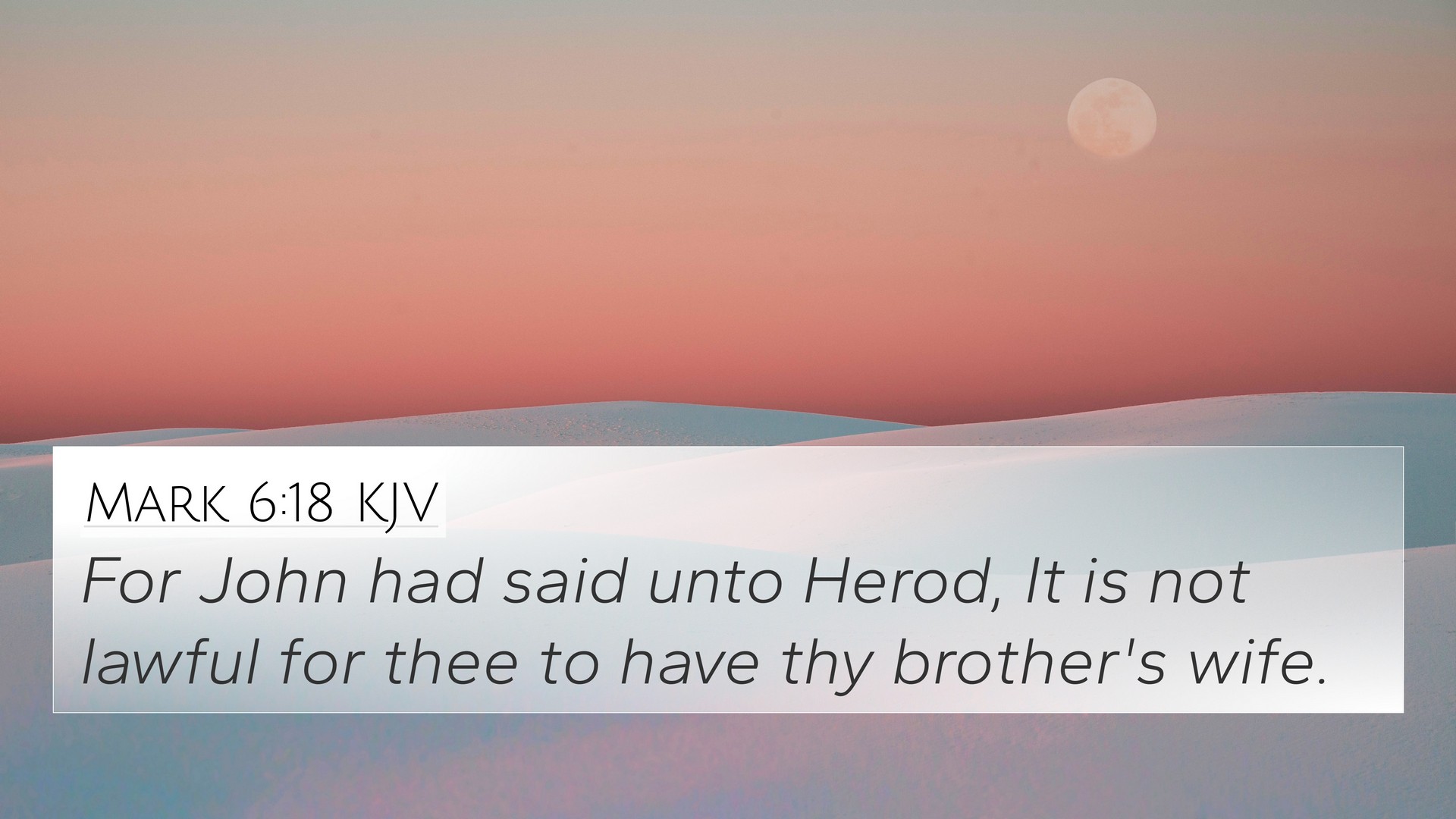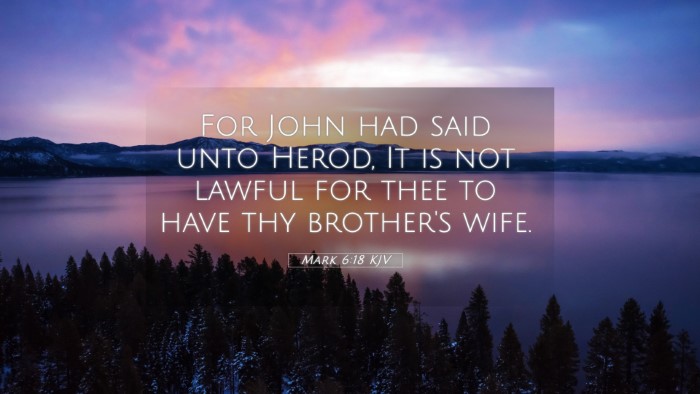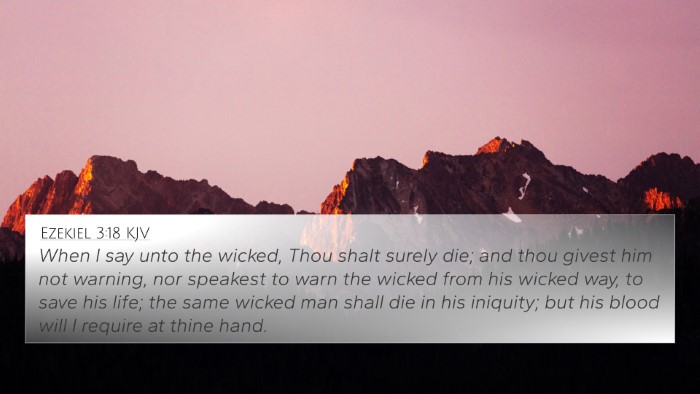Understanding Mark 6:18
Mark 6:18 states: "For John had said unto Herod, It is not lawful for thee to have thy brother's wife." This verse delivers a profound message about moral integrity, righteousness, and the consequences of sin.
Contextual Overview
This verse occurs within the narrative of John the Baptist's ministry and his confrontation with Herod Antipas, who unlawfully took his brother Philip's wife, Herodias. John’s bold proclamation not only reflects his commitment to God's law but also foreshadows the peril he encounters due to his unwavering zeal for truth.
Thematic Insights
- Rebuke of Sin: John serves as a prophetic figure challenging the moral failures of authority, exemplifying the call to question and confront inequality and vice.
- Moral Law: The underlying principle showcased here is the significance of adhering to God’s moral laws, relevant across both the Old and New Testaments.
- Consequences of Disobedience: John’s rebuke leads to severe consequences, not just for him but also for Herod, showing the ripple effect of sin.
Commentaries on Mark 6:18
Matthew Henry's Commentary
Henry emphasizes that John the Baptist was a voice in the wilderness, calling for repentance. His confrontation with Herod highlights that true prophets do not shy away from proclaiming truth, regardless of the consequences. John’s boldness exemplifies the moral duty of believers to uphold righteousness even when it is unpopular.
Albert Barnes' Notes on the New Testament
Barnes explains that John's declaration to Herod was a direct condemnation of sin, and he outlines the law concerning marriage from the Mosaic tradition. This verse serves as a powerful reminder of how God’s laws are immutable and, when contravened, lead to moral decay within society.
Adam Clarke's Commentary
Clarke provides a historical context to the situation, indicating that Herod Antipas's actions were not only politically motivated but stemmed from a deep-seated moral defiance. He points out that John’s unwavering stance on righteousness brought about his eventual imprisonment and execution, illustrating the price of prophetic truth.
Bible Cross-References
Mark 6:18 can be understood more deeply by examining related verses:
- Leviticus 18:16: Discusses the prohibitions against marriage with a brother's wife.
- Matthew 14:4: Provides a parallel account of John’s rebuke to Herod regarding Herodias.
- Luke 3:19-20: Describes John's imprisonment after confronting Herod.
- Romans 1:32: Discusses the consequences of unrighteousness among leaders and their moral decay.
- 1 Corinthians 5:1: References the importance of maintaining moral standards within the community.
- Hebrews 13:4: Emphasizes the sanctity of marriage and God's judgment on those who defile it.
- Proverbs 28:1: Highlights the boldness of the righteous compared to the fearfulness of the wicked.
Connections Between Bible Verses
The connections between this verse and others reveal a broader yet interconnected moral framework within scripture:
- Linking to Righteousness: Mark 6:18 connects with 1 Peter 3:14, which speaks about suffering for righteousness’ sake.
- Echoes of Prophetic Voices: The theme of prophetic voices in the face of adversity resonates throughout the Bible, can be linked to Isaiah 58:1.
- Comparative Analysis with Nathan's Confrontation: 2 Samuel 12:7 highlights how prophets challenge kings, similar to John's confrontation with Herod.
Tools for Bible Cross-Referencing
For those interested in deeper studies, tools for cross-referencing Biblical texts are invaluable. Consider:
- Bible concordances
- Cross-reference Bible study guides
- Online Bible reference resources
Conclusion
Mark 6:18 serves as more than just a historical account; it embodies the essence of moral courage and the prophetic duty to speak truth to power. By understanding this verse and its connections, one can appreciate the rich tapestry of biblical themes regarding righteousness, accountability, and the consequences of sin.









